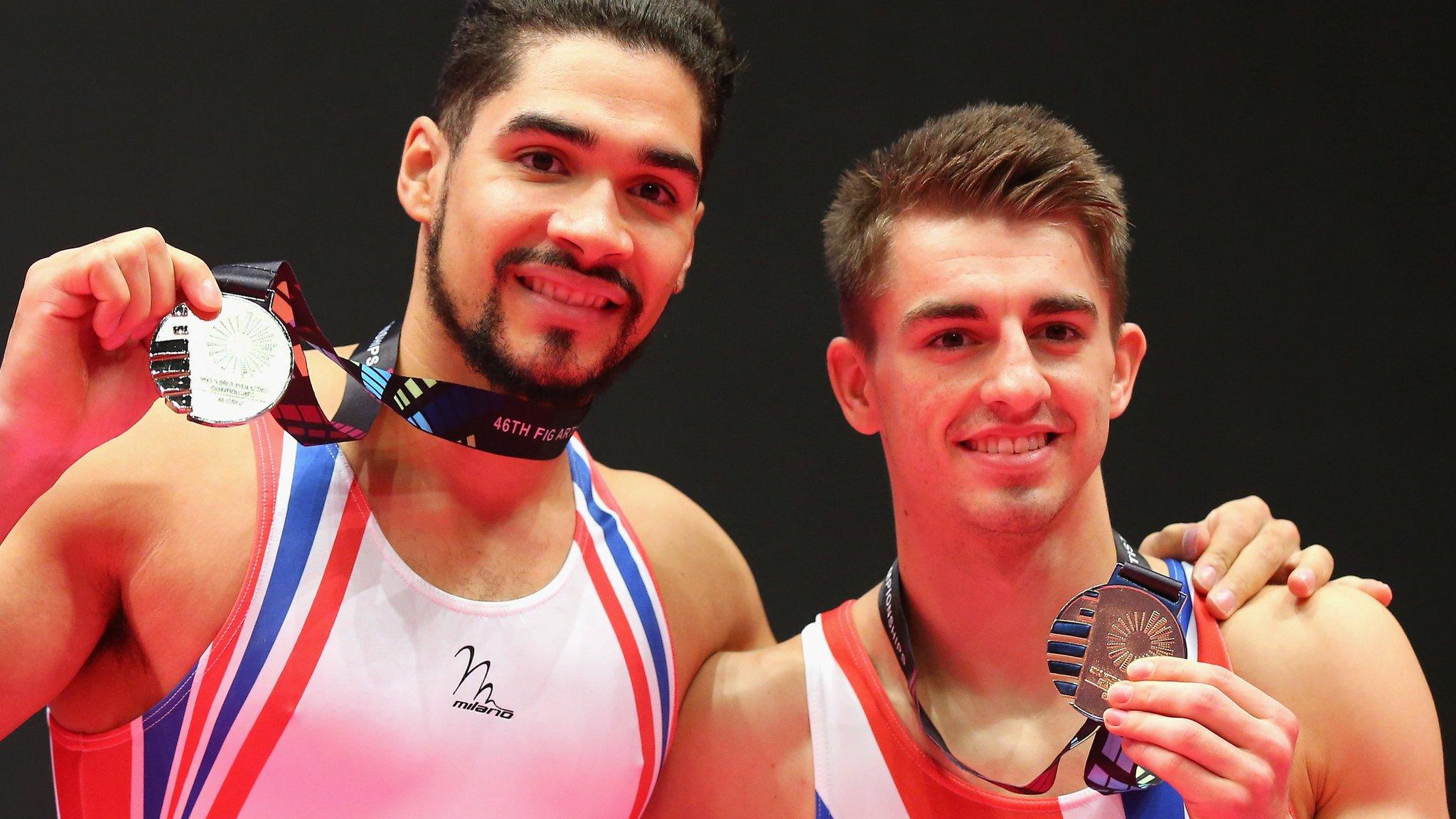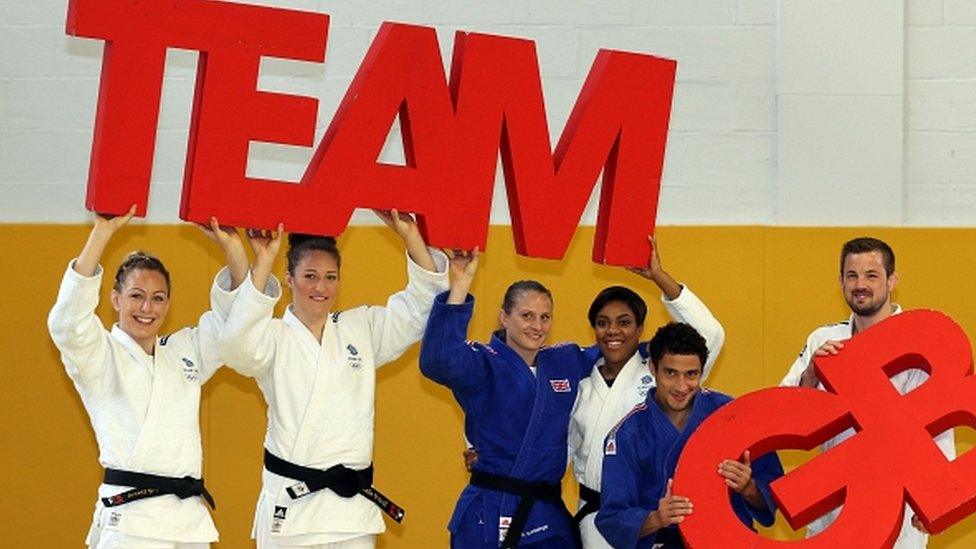Gymnastics at the Rio 2016 Olympics: All you need to know
- Published

Olympic Games on the BBC |
|---|
Venue: Rio de Janeiro, Brazil Dates: 5-21 August Time in Rio: BST -4 |
Coverage: Watch on BBC One, BBC Four, Red Button and up to 24 HD video streams on mobile, desktop and connected TVs, plus follow on Radio 5 live and via live text commentary. |
How does it work?
The competition begins with a team event, where men compete on six apparatus - floor, vault, horizontal bar, parallel bars, pommel horse and rings - while women compete on four - flour, vault, uneven bars and balance beam.
The top scorers, a maximum of two from each country, then progress to the individual finals, where medals can be won in the all-around event as well as for each individual apparatus.
Their performances are scored by nine judges, who take into account the level of difficulty of their routine, the quality of their technical movements and how well it was executed.
Who are the favourites?
Japan's reigning Olympic champion Kohei Uchimura is the man to beat, having won an unprecedented six consecutive all-around world titles.
American Simone Biles will compete at her first Games, having won the past three women's all-around world titles.
What about the British prospects?
World champion Max Whitlock will aim to win Britain's first Olympic gymnastics title, although his biggest rival on the pommel horse could be team-mate Louis Smith, who won silver in London.
The men's team will expect to make the podium for a second Games in a row, and the women's team could do so for the first time.
When is it on?
Competition takes place from Saturday to Thursday in the first week, with a further three days from Sunday, 14 August until the following Tuesday.
I didn't know that...
The word gymnastics derives from gymnos, which is Greek for naked, since gymnasts in the ancient Olympics used to perform in the nude.
Previous British medallists
Eight (two silver, six bronze).
Most recent British medals
2012: Louis Smith (silver, pommel); Max Whitlock (bronze, pommel); men's team (bronze), Beth Tweddle (bronze, uneven bars).

How does it work?
Gymnasts perform their routines to music with four types of apparatus: hoop, ball, clubs and ribbon. Points are awarded for form, execution, control of the apparatus, flexibility and choreography.
Gold medals are on offer in the women's individual all-around and the women's group all-around.
Who are the favourites?
Russia have won every gold medal in the sport since the 2000 Olympics in Sydney and are once again favourites in both the group and individual events.
Yana Kudryavtseva, only 18, has won the past three all-around world titles and will be aiming to win Russia's fifth successive individual all-around title.
What about the British prospects?
There will not be any British representation in this event.
When is it on?
There will be three days of competition from Friday 19 to Sunday, 21 August, with medals up for grabs on the Saturday and Sunday.
I didn't know that...
There have been growing calls for men's rhythmic gymnastics to be recognised by the sport's governing body. Russia's head of the sport, Irina Viner-Usmanova, said she is "absolutely behind men taking part".
In Japan, the roots of men's rhythmic gymnastics are almost as deep as those of the women's sport in Russia. "Apparatus manipulation" is the technical term for the discipline in Japan.
Previous British medallists
None.

How does it work?
Jumping on the trampoline, gymnasts perform a rapid series of tumbles and twists in mid-air. Each gymnast first performs a series of 10 elements and, on the signal of the chief judge, then has one minute to begin their routine.
A jury grades the performance on difficulty, execution and time spent in the air. There are men's and women's individual competitions, in which each have two qualifying routines, with the top eight progressing to the final.
Gymnasts are not allowed to compete with bare feet.
Who are the favourites?
China has produced at least one gold medallist at world and Olympic level every year since 2007.
Gao Lei is the men's world champion, while his China team-mate Li Dan holds the women's title after she finished just ahead of compatriot Liu Lingling last November.
What about the British prospects?
Britain have earned two female spots for the first time. Kat Driscoll will compete in her second successive Olympics, while team-mate Bryony Page finished two places ahead of her in fifth at the 2015 World Championships.
Nathan Bailey will be Britain's first male representative since 2004 - he finished 17th in the world semi-finals.
When is it on?
Competition will take place over two days; Friday 12 and Saturday, 13 August.
I didn't know that...
The sport's creator, Iowa student George Nissan, originally called his invention a 'bouncing rig'. After discovering during a trip to Mexico that the Spanish word for diving board was el trampolin, he added an 'e' and registered 'Trampoline' as a trademark.
Previous British medallists
None.
Highest British position
2000: Lee Brearley, sixth.
Subscribe to the BBC Sport newsletter, external to get our pick of news, features and video sent to your inbox.
- Published12 July 2016

- Published19 July 2016

- Published13 May 2016

- Published19 July 2016
